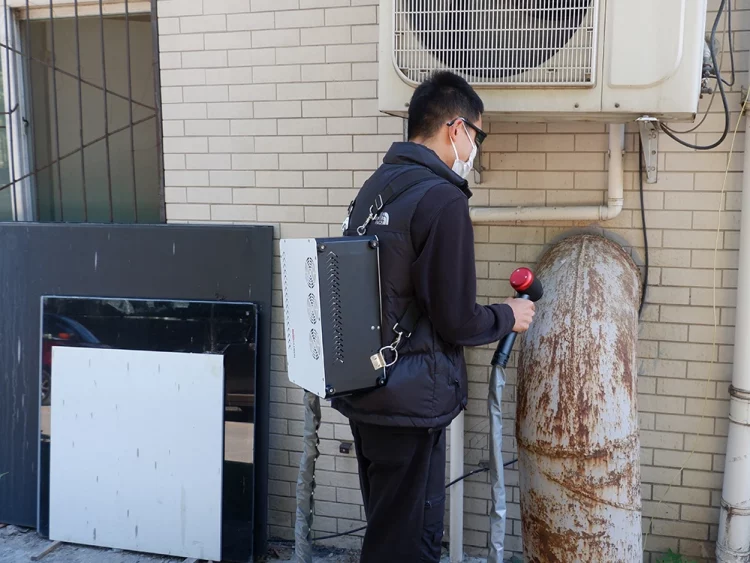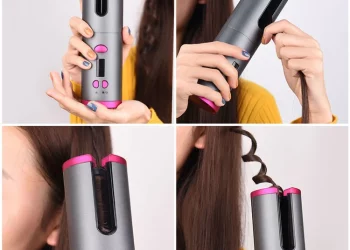Laser cleaning of metal is becoming popular. Many industries are using this method to improve efficiency. However, some old-fashioned people believe in the myth that lasers damage the quality and lifespan of the overall material. Is it true?
No, the laser cleaning method is 100% safe and does not affect or damage the material. It is only targeted on the unwanted material, and it only destroys or vaporizes the contaminants that you want to remove.
This guide will debunk all the misconceptions people have about the safety of materials and the performance of laser cleaning machines. So, without further ado, let’s start!
Can Laser Cleaning Cause Damage to Metal Surfaces?
No, the laser beam’s energy is set to match the ablation energy of the unwanted material. So, only contamination absorbs the energy, gets the heat, and breaks down. The remaining surface of the material remains safe.
Let me explain this by giving you the example of rusted steel. This rust material consists of steel and a layer of rust. Both steel and the layer have different ablation energies. Steel has more power than the layer of rust.
While cleaning the rusted steel, we will set the laser’s energy to match the ablation energy of the rust, not the steel. When we direct the laser beam to the rust area, the rust will absorb heat.
Once the rust’s maximum absorption limit is reached, it is destroyed into small pieces. We don’t increase too much energy that could affect the steel surface. We aim to clean rust, so we only provide ablation energy to the rust and remove it.
In this way, the material and its surface remain safe. The lasers do not affect the quality of the remaining material to any lesser extent. The same goes for paints, oil, and all other contaminants—and the material surface remains safe in all cases.
Does Laser Cleaning Affect Metal Surface Finish?
Yes, the metal surface finish also remains safe. If the rust is present at the finishing, you will only direct the laser beam to that finishing. This way, the heat will reach the rust and break it down quickly. You can use the continuous laser machine to get the job done perfectly.
However, if you have precious material you want to be careful about, use the pulse laser cleaning machine. The pulsed laser cleaner gives you control, so you can remove the rust only without affecting the finishing.
Can Laser Cleaning Remove All Types of Contaminants?
As you know, different types of contaminants can attack your material. Those include rust, paint, grease, and oxides. So, does the laser cleaner remove all such impurities without damaging the surface?
No matter the contaminant’s strengths, the laser machine will provide an ablation energy threshold and remove it in seconds. However, if the contaminant is solid, you must provide more energy (heat) to remove it from the material’s surface.
Providing more energy or heat might affect the material’s surface on which the contaminant is present. However, you don’t need to worry—you will provide ablation energy to only unwanted material. So, the surface will remain safe no matter how much power you provide through the lasers.
Can Laser Cleaning Safely Treat Intricate Metal Surfaces?
The intricate surface means the material consists of designs, engravings, or detailed contours. You should keep those designs and engravings safe and remove the unwanted material.
The laser cleaning process safely removes the unwanted material but does not affect the designs and engravings. The heat provided is absorbed by the unwanted material, breaking it without affecting the design underneath.
However, if you are cleaning something precious and have an engraving you want to secure, I recommend you use a pulsed laser machine. This machine will give you better control, and you’ll be able to provide heat and energy only to contaminants.
What Types of Metals Can Be Laser Cleaned?
Almost every kind of metal can be treated and cleaned with the laser cleaning process. Whether the metal has rust or is contaminated with oil and paint, the laser machine will clean it to the best of its ability.
Examples of those metals include Steel, Aluminum, Copper, Brass, Stainless Steel, Titanium, and Nickel. However, never clean plastic and semi-plastic material with laser cleaning. The heat provided by the laser will melt the plastic. This method helps clean metals only.
Laser vs Traditional Cleaning: Which is the Safest?
Laser cleaning is more secure and valuable than the old-fashioned cleaning methods. Unlike the traditional methods, you don’t have to make direct contact with metal in the laser cleaning method. The laser will do the job.
Not only is the laser cleaning method safe, but it is also cost-effective. In the past, industries had labor costs for cleaning metals. The laborers had to clean the metal with brushes, which were confusing and harmful for the hand laborers.
However, you must direct the laser to the unwanted material with the modern laser method. It will remove the contamination in just a few seconds without affecting the quality of the overall material. Traditional methods also affect the quality of general material.
Conclusion
So, the laser cleaning method is 100% for both the user and the surface of the material (metal) that undergoes cleaning. It is much better than the traditional methods of cleaning. It is cheaper and easy to use. No matter how strong the rust or contamination is, the laser will remove it in moments.









